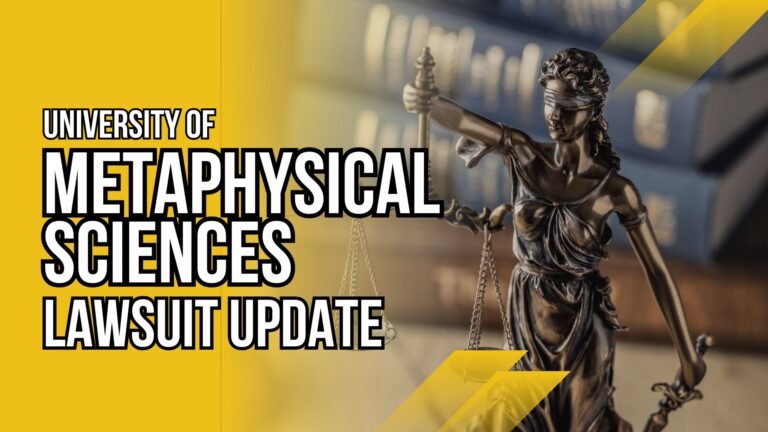
When news of a lawsuit hits a high-profile investment firm like White Oak Global Advisors lawsuit, it piques the curiosity of both current and prospective investors. A lawsuit can send shockwaves through financial markets, causing uncertainty and raising questions about a firm’s viability and future. For anyone holding or considering investments with White Oak, understanding the specifics of the lawsuit, its causes, and its potential impacts is essential.
This article offers an in-depth overview of the White Oak Global Advisors lawsuit, breaking down the critical details, exploring its significance for investors, and offering practical advice on how to navigate such uncertain waters.
Background of White Oak Global Advisors Lawsuit
White Oak Global Advisors lawsuit is an established investment management firm known for its focus on private credit, primarily providing financing to businesses across various sectors. The firm has built a reputation for its expertise in structured credit, offering customised financing solutions to middle-market companies.
Founded with the goal of providing superior returns through carefully curated investment strategies, White Oak has grown its client base, including institutional investors, pension funds, and wealthy individuals. The company’s leadership consists of seasoned professionals with decades of experience in the financial industry, including both asset management and investment banking.
Despite its impressive portfolio and solid track record, recent legal challenges have brought the firm under scrutiny. So, how did it come to this?
What Led to the Lawsuit?
The White Oak Global Advisors lawsuit emerged from a series of contentious financial dealings and allegations of mishandling investor funds. Although the specifics are complex, several key events and transactions appear to have triggered the legal battle.
The lawsuit originated when a group of investors filed complaints alleging that White Oak failed to uphold its fiduciary duty and engaged in questionable financial practices. These include accusations of mismanagement of investor capital, failure to disclose critical information, and engaging in risky financial transactions that disproportionately harmed investors.
Additionally, a regulatory investigation into the firm has fueled the litigation. Regulatory bodies suspect that White Oak violated certain financial rules, specifically in relation to transparency and reporting.
Legal Issues at the Heart of the Lawsuit
At the core of the lawsuit are several key allegations:
- Breach of Fiduciary Duty: Investors allege that White Oak failed to act in their best interests, prioritising personal or corporate gains over the welfare of clients.
- Failure to Disclose Risks: The firm is accused of not properly informing investors about the risks involved in specific investment products, especially those that lost value due to market conditions.
- Non-compliance with Regulatory Requirements: There are concerns regarding White Oak’s adherence to financial regulations, particularly in terms of reporting and disclosure practices.
These legal issues have drawn the attention of both investors and regulators, setting the stage for a high-profile legal showdown.
Impact of the Lawsuit on Investors
The lawsuit is already having a significant impact on both the firm’s operations and its investors.
Short-term Effects on Investment Portfolios
In the short term, the lawsuit has caused volatility in the firm’s asset management products. Investors who have substantial holdings in White Oak’s funds may see a decline in value as the legal proceedings unfold. The uncertainty surrounding the outcome of the lawsuit often leads to reduced investor confidence, which can further harm stock prices or fund values.
Long-term Implications
For long-term investors, the outcome of the lawsuit could have far-reaching implications. If the firm is found guilty of the allegations, investors could face significant losses, especially those holding concentrated positions in funds directly impacted by the case. On the other hand, a favourable outcome for White Oak could reassure investors and restore some level of stability.
How Investors Can Assess Risk
Investors must assess their exposure to White Oak Global Advisors in light of the ongoing legal situation. For some, it might be wise to diversify their portfolios or consider selling off underperforming investments. It’s essential to understand the potential risks and rewards associated with staying invested during a time of legal uncertainty.
Key Legal Players Involved
The legal battle is being fought by a team of seasoned attorneys on both sides, with investors represented by law firms specialising in securities litigation, while White Oak defends its practices with a group of high-profile corporate lawyers. The outcome of the lawsuit may depend heavily on the effectiveness of these legal teams in proving or disproving the allegations.
What Does the Lawsuit Mean for the Investment Industry?
This case is not just about White Oak Global Advisors—it has significant implications for the broader investment industry. As regulators tighten financial rules and investors become more cautious, the lawsuit underscores the importance of transparency, compliance, and the ethical responsibility of investment managers.
It also signals that investors are increasingly vigilant about the companies they trust with their money, demanding higher levels of accountability and diligence from financial firms.
Investing in Troubled Firms: What Should You Know?
When investing in firms under legal scrutiny, it’s crucial to understand the risks involved. Here are some tips for investors:
- Due Diligence: Always conduct thorough research on a company’s legal and financial standing.
- Diversification: Spread your investments across different assets and firms to mitigate potential risks.
- Regular Monitoring: Stay updated on news and legal developments related to your investments.
How the Lawsuit May Affect White Oak Global Advisors’ Reputation
A major concern for investors is how the lawsuit will affect White Oak’s reputation. Negative publicity could damage the firm’s brand, making it harder to attract future investments or clients. Furthermore, the longer the case drags on, the more likely the firm will experience a decline in investor trust, which can have a lasting effect on its operations.
Regulatory Scrutiny and Compliance Issues
The lawsuit highlights critical issues related to regulatory compliance within the financial sector. For firms like White Oak, adhering to financial regulations is not just a matter of legal obligation but also a cornerstone of maintaining investor confidence.
Financial Recovery and Crisis Management
White Oak’s ability to recover from the lawsuit depends on several factors, including the legal outcome and the firm’s crisis management strategies. If the firm can reach a settlement or win the case, it may be able to restore its financial health and move past the issue.
Legal Precedents and Impact on Future Lawsuits
This case could set a precedent for future lawsuits in the financial industry. If the outcome leads to new legal standards or regulatory changes, it may impact other investment firms that operate in similar spaces.
Investor Actions: Should You Be Concerned?
If you are an investor affected by this lawsuit, consider speaking with a financial advisor to assess your next steps. Staying informed and prepared can help you navigate the uncertainty surrounding the case.
Alternatives for Investors Seeking Stability
If you’re worried about your investment with White Oak, consider exploring other stable investment opportunities. Focus on firms that offer transparency, solid regulatory compliance, and a proven track record in managing risk.
Conclusion
To wrap up, the White Oak Global Advisors lawsuit has brought significant attention to the firm’s business practices and raised important concerns for investors. Here’s a quick recap of the key points:
- The Allegations: White Oak is facing serious legal challenges, including accusations of mismanagement of funds, failure to disclose risks, and violations of regulatory requirements. These allegations have led to a lawsuit that could have wide-reaching implications for both the firm and its investors.
- Impact on Investors: The lawsuit has already caused market volatility, with some investors seeing declines in the value of their holdings. While the immediate effects may be unsettling, the long-term outcomes depend on the legal resolution and the firm’s ability to recover from the crisis.
- Broader Industry Implications: The case underscores the importance of transparency and compliance within the financial sector. It highlights the risks of investing in firms that are under legal scrutiny, and it could set new legal precedents for how similar cases are handled in the future.
For investors, the White Oak Global Advisors lawsuit is a wake-up call about the risks involved in trusting a financial firm without fully understanding its practices and legal standing. While the case’s outcome remains uncertain, the key takeaway is that vigilance is essential.
FAQs About White Oak Global Advisors Lawsuit
- What should investors do if they’re affected by the lawsuit?
- Investors should seek legal advice and consider diversifying their portfolios to minimize risk.
- How does a lawsuit affect a company’s stock prices?
- A lawsuit can lead to stock price volatility, as investors react to the uncertainty surrounding the legal outcomes.
- Can a lawsuit be a reason to sell off investments?
- Yes, depending on the severity of the case, investors may choose to sell if they believe the legal troubles will negatively impact the firm.
- What is the timeline for a resolution in lawsuits like this?
- The timeline varies, but financial lawsuits can take months or even years to reach a final resolution.
- How does a lawsuit impact a company’s future business operations?
- A lawsuit can affect a company’s reputation, regulatory standing, and ability to attract new business, all of which can disrupt its operations.






